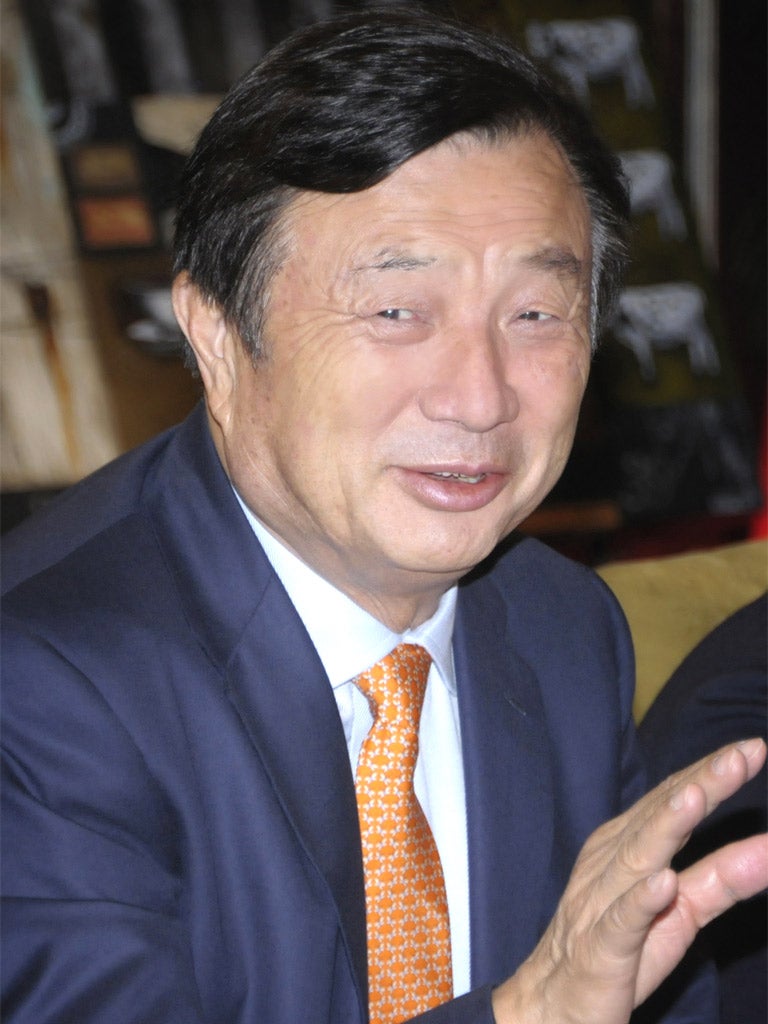Secrecy and security: Huawei is the company that has the world worried

You may not have heard of Huawei, but its products may well be in your house. Last year the company, based in Shenzen, China, overtook Ericsson to become the world’s largest manufacturer of telecoms equipment. It controls a quarter of the EU market in telecoms infrastructure and has won more than half of the contracts for 4G technology awarded in Europe, including big deals with EE (formerly Orange and T-Mobile), O2 and 3UK.
It turns over more than $32bn, employs 140,000 people and has customers in 140 countries. Last year it muscled its way to third place in the smartphone market, behind Samsung and Apple. Many people believe it is also being used by the Chinese government to spy on the rest of the world.
Huawei has been forced to deny repeated allegations that the equipment it makes – from internet cables to smartphones – contains “digital back doors” that could be used to snoop on commercial and government data.
Huawei’s presence remains relatively small in the US, where some claim it forms part of a concerted espionage campaign by the Chinese government. Many of those fears stem from the company’s culture of secrecy, and indeed it was only a few days ago that chairman Ren Zhengfei, who founded Huawei 26 years ago, gave his first interview. “Huawei has no connection to the cyber-security issues the US has encountered,” he told reporters in New Zealand. “Huawei equipment is almost non-existent in networks running in the US. We have never sold any key equipment to major US carriers, nor have we sold any equipment to any US government agency.”
In China, Mr Ren is seen as a star of the new entrepreneurial class, building the company without many of the party connections enjoyed by other major firms.
But his past as an engineer in the People’s Liberation Army does little to settle US nerves.
A report last October by the House Intelligence Committee in Washington advised American companies to avoid buying from Huawei and another Chinese telecoms firm, ZTE. The US is not alone. Australia blocked Huawei from bidding on the contract for its national broadband network in March 2012, while both Canada and India have raised concerns.
A Huawei representative described the House Intelligence Committee report as “little more than an exercise in China-bashing, protectionism, and an egregious example of libel”.
Tim Stevens, a cyber-security expert with the Centre for Science and Security Studies at King’s College, London, says suspicion is warranted, but warned that it also serves US interests to depict Chinese companies as a threat. “If Huawei has been installing chips that communicate back to China, that is a major breach of national sovereignty,” he said. “But we simply don’t know the extent to which it is true. It is very difficult to say where the private company ends and the government begins.”
Subscribe to Independent Premium to bookmark this article
Want to bookmark your favourite articles and stories to read or reference later? Start your Independent Premium subscription today.

Join our commenting forum
Join thought-provoking conversations, follow other Independent readers and see their replies